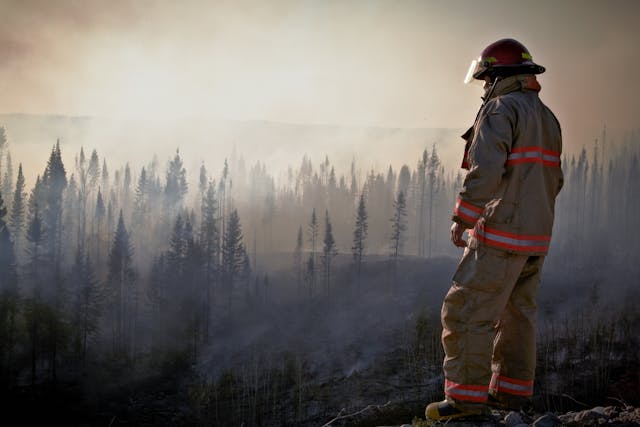The world has faced numerous crises in recent years, ranging from natural disasters to global health emergencies. These challenges highlight the need for a deeper understanding of how our surroundings affect human life and how we can better respond to these situations. One way to tackle these challenges is by educating individuals about the connection between human activity and the natural world. By doing so, communities can prepare for and effectively respond to crises, minimizing harm and loss.
Environmental education plays a crucial role in crisis management by equipping individuals with the knowledge and tools needed to address these issues. It fosters a sense of responsibility, encourages sustainable practices, and enhances resilience in times of uncertainty.
This article will explore key reasons why understanding our natural surroundings is essential for managing crises.
Enhancing Awareness of Environmental Risks
Understanding the risks posed by natural forces is critical in crisis management. Education about floods, hurricanes, wildfires, and other hazards helps people recognize early warning signs and take preventive measures. For instance, teaching residents about water management systems and evacuation plans can save lives in flood-prone areas. Similarly, knowledge about the effects of deforestation and pollution can prompt action to reduce such risks.By raising awareness, communities become better equipped to face challenges. This kind of knowledge empowers individuals to act responsibly and make decisions that reduce harm during emergencies.
Building Disaster Resilience Through Specialized Knowledge
Gaining specialized knowledge is a key aspect of building disaster resilience. Understanding how crises unfold and how to address them ensures that communities can recover quickly and effectively. For instance, opting for a disaster resilience MSW degree designed to combine social and natural sciences equips professionals with tools to address real-world challenges. They prepare social workers to integrate crisis management strategies with social work practices. It focuses on building resilient communities by addressing disasters’ social, economic, and environmental aspects. Graduates from such programs play an essential role in helping individuals and communities recover and adapt.
Promoting Community Engagement in Crisis Response
When people are informed, they are more likely to engage with their communities during a crisis. Education ensures that individuals understand their role in collective efforts, such as forming disaster response teams or organizing relief efforts. This participation leads to faster recovery and stronger bonds within communities. Communities that prioritize education can develop effective response plans that consider diverse needs. This inclusivity ensures that vulnerable groups receive the help they need, leading to a more unified and prepared society.
Fostering Sustainable Practices for Crisis Prevention
One of the best ways to prevent crises is by adopting sustainable practices. Teaching individuals about conservation, waste reduction, and resource management reduces the likelihood of emergencies caused by human activity. For example, practices such as responsible farming or reducing single-use plastics can significantly lower risks. Education helps individuals and organizations reduce their environmental footprint by encouraging sustainable habits. This proactive approach ensures that fewer resources are wasted and ecosystems remain balanced, reducing the frequency and severity of crises.
Supporting Policy Development and Advocacy
Education also empowers individuals to influence policies related to crisis management. When people understand the root causes of crises, they can advocate for stronger regulations and initiatives. This includes lobbying for improved waste management systems, stricter building codes, or enhanced disaster preparedness programs.Informed citizens are better equipped to collaborate with policymakers, ensuring that public policies align with the needs of the community. This advocacy helps prevent crises and fosters long-term solutions that benefit everyone.
Preparing Future Leaders for Crisis Management
Educating individuals about how to address emergencies helps prepare future leaders capable of handling complex challenges. These leaders can guide their communities through disasters by using effective strategies and making informed decisions. They play a key role in coordinating response efforts and ensuring that resources are used efficiently.When future leaders are trained in managing crises, they can inspire others to take proactive steps to prevent emergencies. This ripple effect creates a culture of responsibility, where everyone works together to reduce risks and recover more effectively when challenges arise.
Advancing Technological and Scientific Innovations
Understanding the science behind disasters encourages innovation. Research and education can lead to the development of better tools, such as early warning systems, disaster prediction models, and energy-efficient technologies. These advancements improve our ability to prevent, manage, and recover from crises.For example, teaching students about climate patterns can inspire them to develop cutting-edge technologies, such as weather forecasting software or renewable energy solutions. These innovations save lives and reduce the financial impact of disasters on communities.
Bridging the Gap Between Social and Environmental Challenges
Many crises involve both social and natural factors. For instance, a natural disaster like a hurricane can cause social issues such as displacement, unemployment, and food insecurity. Educating individuals about these interconnected challenges helps bridge the gap between addressing social and environmental problems. By understanding how these issues are linked, professionals can create solutions that tackle multiple aspects of a crisis. For example, disaster response plans that include mental health services and economic support can address the broader impacts of emergencies on affected communities.
Strengthening Collaboration Between Sectors
Crisis management requires the collaboration of governments, non-profit organizations, businesses, and local communities. Education fosters a collaborative mindset by teaching individuals how to work across sectors to address shared challenges. This teamwork ensures that resources are used efficiently and everyone contributes to recovery efforts.When people understand the importance of collaboration, they are more likely to participate in initiatives such as public-private partnerships or cross-sector training programs. These efforts strengthen the overall capacity to respond to crises effectively and efficiently.
Empowering Individuals to Act in Times of Crisis
Education provides individuals with the confidence and skills they need to act during emergencies. This can include learning how to perform basic first aid, creating evacuation plans, or understanding how to stay safe during natural disasters. Empowering individuals at the local level can significantly reduce the impact of crises. When equipped with the right knowledge, people can take action without waiting for external help. This self-sufficiency improves outcomes for families and communities, ensuring fewer lives are lost and faster recovery happens.
In today’s world, where crises are becoming increasingly common, education plays a vital role in helping communities prepare for, respond to, and recover from disasters. Education equips individuals and leaders with the tools to make a difference. By investing in education, we can create a more resilient society capable of overcoming the challenges of an uncertain future.




